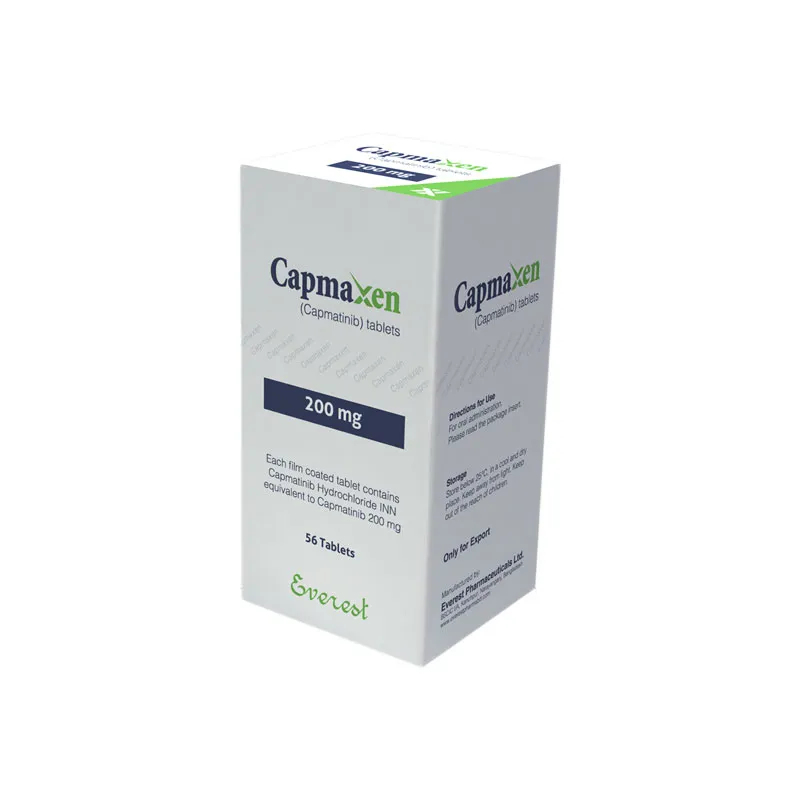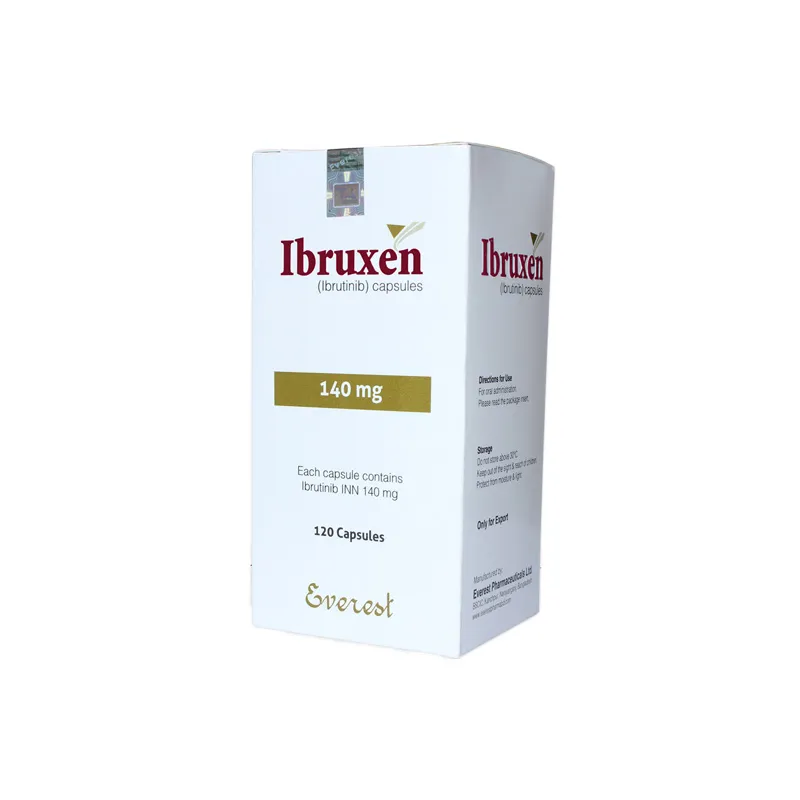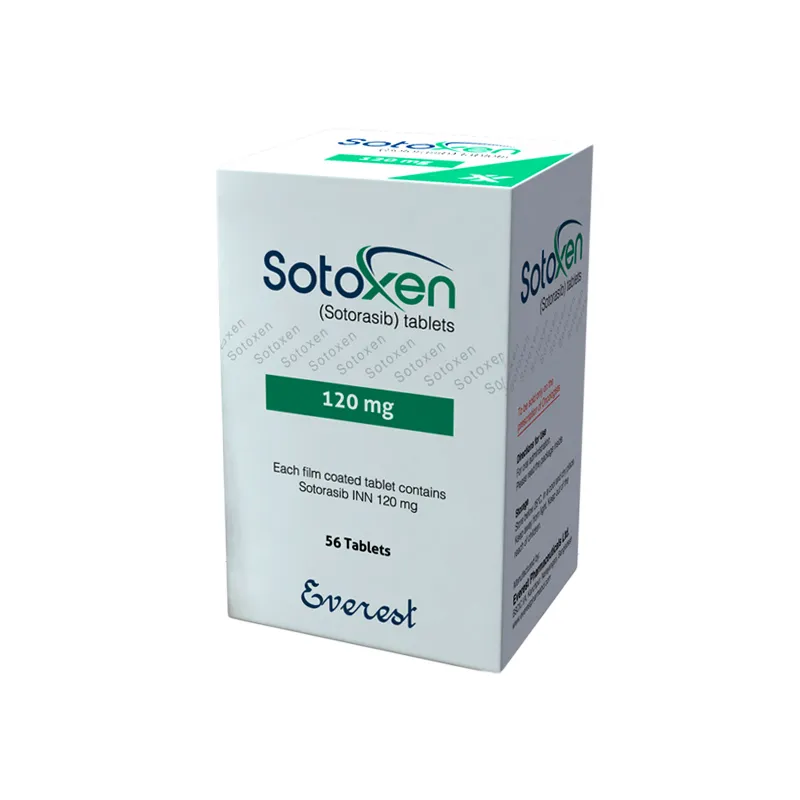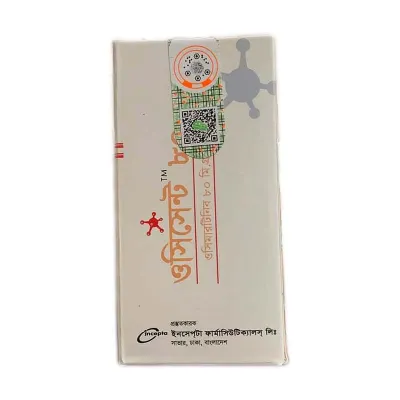Buy Generic Capmatinib
Inquire NowTable of Contents
ToggleWhat is Capmatinib?
Capmatinib, also known by its brand name Tabrecta, is a small molecule inhibitor that targets the MET (hepatocyte growth factor receptor) protein. It was developed by Novartis and approved by the US Food and Drug Administration (FDA) in May 2020 for the treatment of advanced non-small cell lung cancer (NSCLC) with MET exon 14 skipping mutations.
MET exon 14 skipping mutations occur in approximately 3-4% of NSCLC patients and are associated with poor prognosis and resistance to standard treatments such as chemotherapy and targeted therapy. Capmatinib works by blocking the MET protein, which is involved in the growth and spread of cancer cells. This inhibits the signaling pathways that promote tumor growth, thereby slowing or stopping the progression of cancer.
Clinical trials have shown that capmatinib is effective in treating NSCLC with MET exon 14 skipping mutations, with a high overall response rate and durable responses. It is administered orally and its side effects are generally manageable. Capmatinib represents a new targeted therapy option for NSCLC patients with MET exon 14 skipping mutations, offering a potentially more effective and less toxic treatment approach.
Why should you buy generic Capmatinib and not the brand-name medicine Tabrecta?
Generic Capmatinib is a copy of the brand-name medication Tabrecta, which has the same active ingredient, dosage form, and route of administration as the original medication. Generics are required to meet the same quality, safety, and efficacy standards as their brand-name counterparts, and they are typically less expensive.
In general, the decision to use a generic medication instead of a brand-name medication should be made in consultation with your healthcare provider. Your doctor can help determine whether a generic medication is appropriate for your condition and whether there are any specific considerations or concerns to keep in mind. Additionally, your insurance plan may have different coverage or copay policies for brand-name and generic medications, which may impact your decision.
It is important to note that in some cases, a brand-name medication may be preferred over a generic medication due to differences in formulation, dosing, or other factors. Ultimately, the decision to use a brand-name or generic medication should be based on a careful evaluation of the risks, benefits, and costs of each option, as well as your personal preferences and medical history.
Composition
Capmaxen tablet: Each film coated tablet contains Capmatinib hydrochloride INN, equivalent to Capmatinib 200 mg.
Indication and Usage of Capmatinib
Capmatinib, marketed under the brand name Tabrecta, is a medication used to treat adult patients with non-small cell lung cancer (NSCLC) that has a specific genetic mutation called MET exon 14 skipping. This genetic mutation causes the cancer to produce too much of a protein called MET, which can cause the cancer to grow and spread more quickly. Capmatinib works by inhibiting the activity of this protein, slowing down or stopping the growth and spread of the cancer cells.
The FDA has approved capmatinib for the treatment of advanced NSCLC with MET exon 14 skipping mutations that has progressed despite prior therapy, or for patients who have no satisfactory alternative treatment options. Capmatinib is available in oral tablet form and is typically prescribed by a healthcare provider with experience in the treatment of cancer. It is important to follow the dosing instructions provided by your healthcare provider and to report any side effects or concerns that arise during treatment.
Pharmacology of Capmatinib
Capmatinib is a small-molecule inhibitor that selectively targets the MET (hepatocyte growth factor receptor) protein. MET is a receptor tyrosine kinase that is involved in cell growth, survival, and motility. In some types of cancer, including non-small cell lung cancer (NSCLC), the MET protein is overexpressed or mutated, leading to increased activation of the signaling pathways that promote tumor growth and metastasis.
Capmatinib works by binding to the MET protein, which inhibits its activity and blocks the downstream signaling pathways that contribute to cancer growth and spread. Capmatinib has a high selectivity for MET and does not significantly affect other receptor tyrosine kinases, which helps to minimize side effects.
After oral administration, capmatinib is rapidly absorbed and reaches peak plasma concentrations within 1-2 hours. It has a half-life of approximately 6–8 hours and is primarily eliminated through the liver. Capmatinib is typically taken once a day with food to enhance its absorption.
Clinical studies have shown that capmatinib is effective in treating non-small cell lung cancer with MET exon 14 skipping mutations, with a high overall response rate and durable responses. Common side effects of capmatinib include peripheral edema, nausea, vomiting, fatigue, and increased liver enzymes. It is important to discuss any potential side effects or concerns with your healthcare provider during treatment.
Dosage and Administration
The recommended dosage and administration of capmatinib (Tabrecta) for the treatment of non-small cell lung cancer (NSCLC) with MET exon 14 skipping mutations are as follows:
- The recommended dose is 400 mg (two 200 mg tablets) taken orally once daily with food.
- Treatment should continue until disease progression or unacceptable toxicity occurs.
- If a dose is missed or vomited, the missed dose should not be taken, and the next scheduled dose should be taken.
- Dose reductions or treatment interruptions may be necessary based on individual patient factors, such as toxicity, drug interactions, or hepatic impairment. Dose reductions should be made in 100 mg decrements.
- No dose adjustment is necessary for patients with mild or moderate hepatic impairment. Capmatinib has not been studied in patients with severe hepatic impairment or end-stage renal disease.
- Capmatinib should be taken at the same time each day to maintain a consistent drug level in the bloodstream.
It is important to follow the dosing instructions provided by your healthcare provider and to report any side effects or concerns that arise during treatment. Your healthcare provider may adjust your dose or treatment plan based on your individual response to capmatinib. It is also important to inform your healthcare provider of any other medications or supplements you are taking, as they may interact with capmatinib.
Contraindication
Capmatinib (Tabrecta) is contraindicated in patients with a history of severe hypersensitivity or anaphylaxis to capmatinib or any of its components.
Capmatinib should also not be used concomitantly with strong CYP3A4 inhibitors, as this may increase Capmatinib exposure and increase the risk of toxicity. Similarly, Capmatinib should not be used with strong CYP3A4 inducers, as this may decrease Capmatinib exposure and reduce its efficacy.
Additionally, Capmatinib may cause fetal harm when administered to pregnant women. It is not known whether Capmatinib is excreted in human milk or absorbed systemically after ingestion. Women should be advised not to breastfeed while taking Capmatinib and for at least one week after the final dose.
It is important to inform your healthcare provider of any medical conditions you have or any medications you are taking before starting Capmatinib treatment. Your healthcare provider will carefully consider the potential risks and benefits of Capmatinib for your individual situation.
Warnings and Precautions
There are several important warnings and precautions that should be considered before and during treatment with Capmatinib (Tabrecta):
Interstitial Lung Disease (ILD): Capmatinib may cause ILD, a group of lung diseases that cause inflammation and scarring of lung tissue. Patients should be monitored for symptoms of ILD, including dyspnea, cough, and fever, and treatment should be discontinued if ILD is confirmed.
Hepatotoxicity: Capmatinib may cause liver injury, as indicated by increases in liver enzymes or bilirubin. Patients should have liver function tests performed before starting capmatinib treatment and periodically during treatment. Dose modifications or discontinuation of treatment may be necessary if liver function abnormalities are identified.
Risk of bleeding: Capmatinib may increase the risk of bleeding, particularly in patients with brain metastases. Patients should be monitored for signs of bleeding and instructed to report any signs of bleeding to their healthcare provider.
Embryo-Fetal Toxicity: Capmatinib can cause fetal harm when administered to pregnant women. Women of reproductive potential should use effective contraception during treatment and for at least one week after the final dose.
Reduced efficacy with concomitant use of PPIs: Concomitant use of proton pump inhibitors (PPIs) may reduce capmatinib’s efficacy. Patients should avoid concomitant use of PPIs and take capmatinib at least 2 hours before or after PPIs.
It is important to discuss any potential risks or concerns with your healthcare provider before starting capmatinib treatment. Regular monitoring and reporting of symptoms is important to ensure the safe and effective use of this medication.
Side Effects
Like all medications, capmatinib (Tabrecta) can cause side effects. The most common side effects of capmatinib include:
- Peripheral edema (swelling of the feet, ankles, or hands)
- Nausea
- Fatigue
- Vomiting
- Diarrhea
- Decreased appetite
- Cough
- Dyspnea (difficulty breathing)
- Rash
Less common but more serious side effects of capmatinib include:
- Interstitial lung disease (ILD)
- Hepatotoxicity (liver damage)
- Hemorrhage (bleeding)
- Embryo-fetal toxicity (harm to a developing fetus)
- Photosensitivity (sensitivity to sunlight)
- QT prolongation (a heart rhythm disorder)
- Hypertension (high blood pressure)
Patients should notify their healthcare provider immediately if they experience any symptoms of serious side effects, including difficulty breathing, chest pain, severe abdominal pain, or signs of liver damage such as yellowing of the skin or eyes. It is important to report any side effects to your healthcare provider, as they may require dose modifications or discontinuation of treatment.
Drug Interactions
Capmatinib (Tabrecta) may interact with other medications, including prescription drugs, over-the-counter drugs, and herbal supplements. Some of the most significant drug interactions with capmatinib include:
Concomitant use of strong CYP3A4: Inhibitors may increase capmatinib exposure, potentially increasing the risk of toxicity.Examples of strong CYP3A4 inhibitors include ketoconazole, itraconazole, clarithromycin, and ritonavir.
Strong CYP3A4 inducers: concomitant use of strong CYP3A4 inducers may decrease capmatinib exposure, which may reduce its efficacy. Examples of strong CYP3A4 inducers include rifampin, carbamazepine, and phenytoin.
Proton Pump Inhibitors (PPIs): Concomitant use of PPIs may reduce capmatinib’s efficacy. Patients should avoid concomitant use of PPIs and take capmatinib at least 2 hours before or after PPIs.
Warfarin: Capmatinib may increase the anticoagulant effect of warfarin, which may increase the risk of bleeding. Patients taking warfarin should be monitored for signs of bleeding and have their warfarin dose adjusted as needed.
Oral Contraceptives: Capmatinib may reduce the efficacy of oral contraceptives. Women of reproductive potential should use additional methods of contraception during treatment and for at least one week after the final dose.
It is important to inform your healthcare provider of all medications and supplements you are taking before starting capmatinib treatment. Your healthcare provider may need to adjust your dose or closely monitor you for signs of toxicity or reduced efficacy.
Use in Specific Populations
The use of capmatinib (Tabrecta) in specific populations may require caution or dose adjustments. Here are some important considerations:
Pregnancy and lactation: Capmatinib can cause fetal harm when administered to pregnant women. Women of reproductive potential should use effective contraception during treatment and for at least one week after the final dose. It is not known whether capmatinib is excreted in human milk, so women should not breastfeed during treatment and for at least one week after the final dose.
Geriatric Patients: No dose adjustment is necessary based on age. However, elderly patients may be more sensitive to the side effects of capmatinib, such as peripheral edema and hepatotoxicity.
Pediatric Patients: The safety and efficacy of capmatinib in pediatric patients have not been established.
Renal Impairment: No dose adjustment is necessary in patients with mild to moderate renal impairment. However, capmatinib has not been studied in patients with severe renal impairment or end-stage renal disease.
Hepatic Impairment: Capmatinib exposure may be increased in patients with moderate or severe hepatic impairment. Dose reduction may be necessary in these patients.
It is important to discuss any potential risks or concerns with your healthcare provider before starting capmatinib treatment. Regular monitoring and reporting of symptoms is important to ensure the safe and effective use of this medication in specific populations.
Pharmaceutical Information
Storage Condition
Store below 25°C, in a cool and dry place. Keep away from the light. Keep out of children’s reach.
How Supplied
Capmaxen tablet: Each HDPE container contains 56 film coated tablets (each tablet contains 200 mg of Capmatinib), a silica gel desiccant, and a polyester coil with a child-resistant closure.
You must be logged in to post a review.






Reviews
There are no reviews yet.